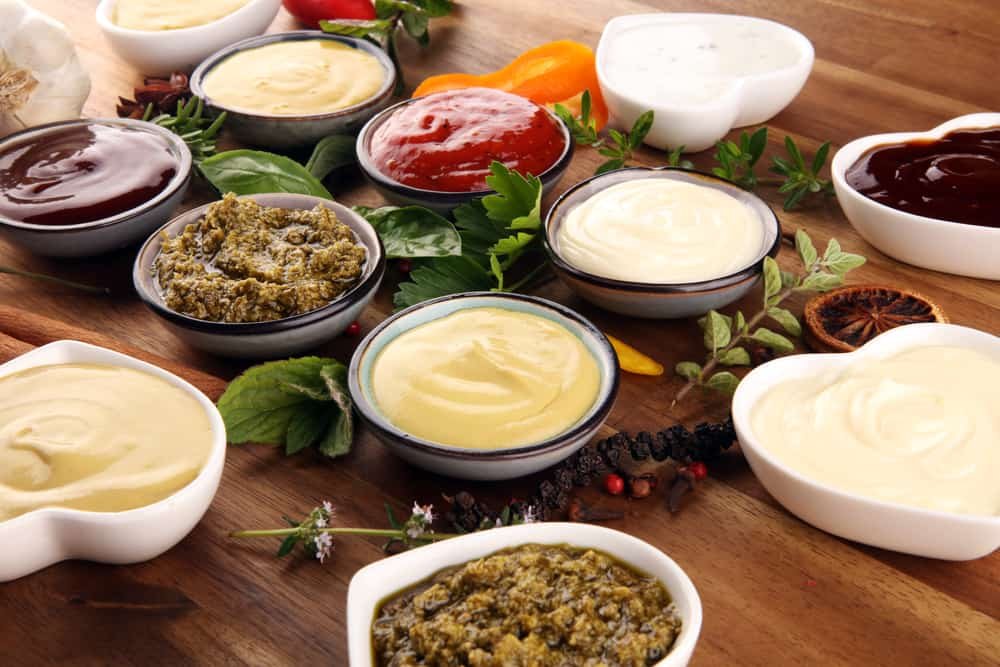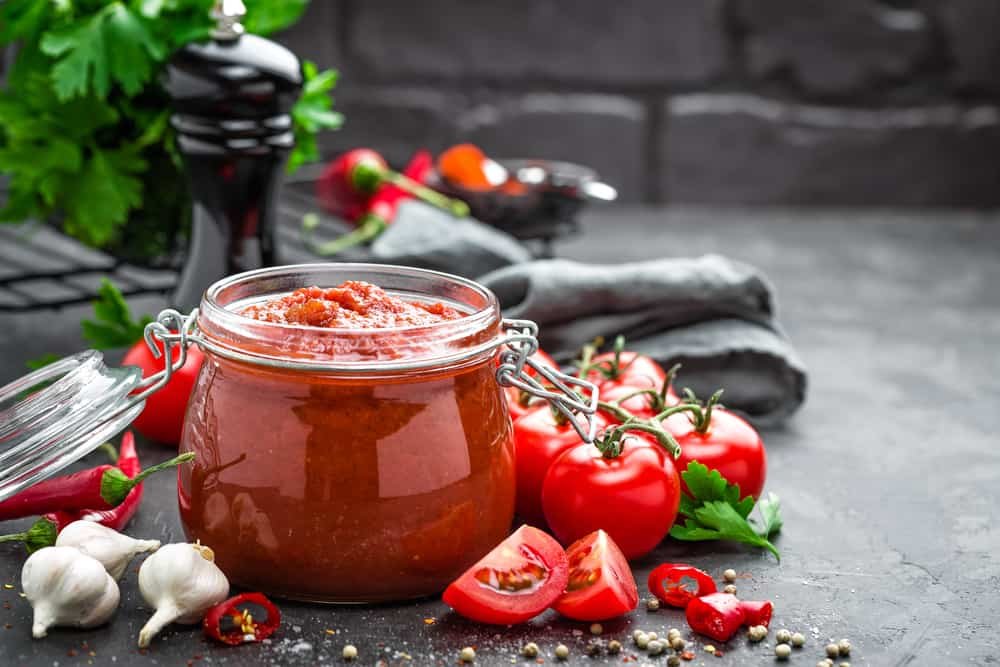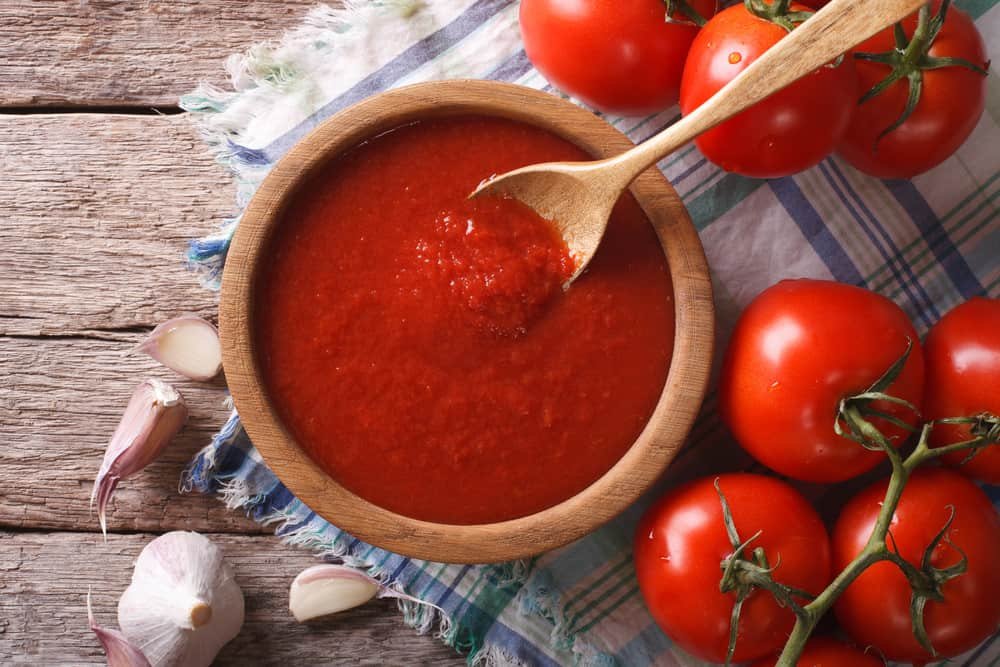I grew up eating only the jarred sauce. It wasn’t until I had kids of my own that I realized how much better homemade sauce could be. I started experimenting with different recipes and found one my kids love. The best part is that they have no idea that it’s pretty healthy for them. Tomato sauce and spaghetti sauce are by far the most popular homemade sauces. It’s simple to make and can be used on many different dishes. Plus, it’s healthy and delicious!

It’s easy to get overwhelmed when thinking about freezing homemade sauce correctly. However, it is easy to make and freeze the fresh homemade sauce.
When you make a big batch of homemade sauce, chances are you’ll have some leftovers. But how can you freeze it so that it will still taste great when you reheat it? By following a few simple tips, you can be sure that your sauces will stay delicious and freezer-friendly for months to come.
Here are some tips for freezing your homemade sauce:
- Let the sauce cool completely before transferring it to a freezer-safe container.
- Leave some headspace in the container to allow for expansion during freezing.
- Label the container with the date and contents.
- Use within 3 months for best quality.
How do you keep the homemade sauce from getting soggy when frozen?
When freezing a homemade sauce, take these steps to prevent it from getting soggy. First, make sure the sauce is completely cooled before transferring it to a freezer-safe container. Next, leave about an inch of space at the top of the container to allow for expansion as the sauce freezes. Finally, label and date the container so you know when it was frozen.
Once you’ve taken these precautions, your sauce should freeze well and not become soggy. When ready to use it, thaw the sauce in the refrigerator overnight before reheating.
How should you prepare the homemade sauce for freezing?
When it comes to freezing homemade sauce, there are a few things you should keep in mind. First, make sure the sauce is completely cooled before freezing. If the sauce is still hot, it can cause ice crystals to form and affect the flavor.
Then, transfer the sauce to an airtight container. This will help prevent freezer burn and preserve the flavor of the sauce. Finally, label the container with the date and contents. This will help you keep track of when you made the sauce and what’s in it.
How do you store frozen homemade sauce long-term?
When making a big batch of homemade sauce, it can be tempting to put the leftovers in the freezer for a quick and easy meal later. But if you don’t store it correctly, your sauce can taste bland and watery. Follow these tips to ensure your frozen sauce stays delicious for months.

To start, freeze your sauce in smaller containers than one large one. This will help it thaw quickly and evenly, so you don’t end up with a big block of ice in the middle of your sauce. Label the containers with the date, so you know how long they’ve been in the freezer.
When ready to use your sauce, thaw it overnight in the refrigerator. Then, reheat it slowly on the stove over low heat.
Can you store the homemade sauce in a Ziploc bag when freezing?
When freezing, you can store the sauce in a Ziploc or freezer bag. It’s one of the best methods. Simply pour the sauce into the bag, seal it tightly, and lay it flat in the freezer. The sauce will last for months this way, and you can thaw it out as needed.
Another great thing about storing sauce in a Ziploc bag is that you can portion it out ahead of time. This is great if you only need a small amount of sauce for a recipe. Simply grab a bag from the freezer, thaw it out, and use as much or as little as you need. No more wasting half a jar of sauce!
How long does fresh homemade sauce last in the fridge vs. the freezer?
When it comes to homemade sauce, the debate is whether it’s better to keep it in the fridge or freezer. Both methods have pros and cons, so it ultimately comes down to personal preference. Here’s a look at how long fresh homemade sauce lasts in the fridge and freezer.
Refrigerating homemade sauce will extend its shelf life by a few days, but it won’t last as long as if frozen. The homemade sauce will last in the fridge for 3-4 days, so eat it within that time. When freezing homemade sauce, it will last for 2-3 months. So, if you want your sauce to last longer, opt for freezing over refrigerating.
Is frozen homemade sauce as good as fresh?
Many people believe that frozen homemade sauce is just as good as fresh. While it’s true that freezing can cause some nutrients to be lost, overall, the difference between fresh and frozen homemade sauce is negligible.
However, there may be a slight difference when it comes to taste. Frozen sauces can sometimes have a bland or watery flavor. This is because the freezing process can cause some of the flavors to dissipate.
If you’re looking for the best possible flavor, you’ll want to stick with fresh sauce. However, if you’re looking for convenience or want to make it ahead, the frozen homemade sauce is a great option.
Why is fresh homemade sauce better than frozen?
When it comes to food, fresh is always best. The same can be said for homemade sauces. Fresh homemade sauce is better than frozen homemade sauce for a few reasons.
For one, the fresh sauce has more flavor. The longer sauce sits in the freezer, the more dull and flat the flavors become. With fresh sauces, you get all of the complex flavors that come from the ingredients.
Another reason why the fresh homemade sauce is better than frozen is that it’s more nutrient-dense. Nutrients tend to degrade over time, so the frozen sauce isn’t as nutritious as a fresh sauce.
Finally, fresh homemade sauce is simply more enjoyable to eat than frozen sauce. It has a better texture and overall, it just tastes better. So next time you’re looking for a quick and easy meal, make sure to go for the fresh homemade sauce instead of frozen!
Can you refreeze the homemade sauce once thawed?
If you have made a fresh homemade sauce, can you refreeze it once it has been thawed? The answer is yes, as long as the food has been kept at a safe temperature and has not been allowed to sit out for more than two hours.
It is best to refreeze the food within 24 hours of thawing, and it should be used within two months. If you are unsure if the food is still good, throw it out.
When freezing homemade food, make sure to use freezer-safe containers and label them with the date so you know when to use them by. Frozen homemade food can be a great convenience, but make sure to follow these safety guidelines to avoid food poisoning.
Best homemade sauce recipe
This delicious, fresh homemade tomato sauce recipe is perfect for anyone looking for a quick and easy way to make their own tomato sauce. It is a quick and easy recipe to use as a pasta sauce. This sauce recipe only requires a few simple ingredients and can be made in under an hour.

Whether you’re looking for a healthier alternative to store-bought tomato sauce or want to try making your own, this recipe is a great place to start. You can have a delicious and healthy tomato sauce ready with just a few simple ingredients.
To make tomato sauce, start by peeling and dicing several fresh tomatoes. Then, add the tomatoes to a pot along with some garlic, onion, basil, and herbs. Cook the sauce until it is thick and bubbly. Preserve nutrients and the original tomato flavor. Once it is finished cooking, you can either enjoy it immediately or store it in the fridge for later use once it comes down to room temperature.
How to defrost frozen sauce?
If you need to defrost tomato sauce quickly, there are a few methods that work well. Place the frozen sauce in a bowl and submerge it in warm water. Change the water every 30 minutes or so until the sauce is thawed. You can also place the frozen sauce in a microwave-safe dish and defrost it on low power for about 5 minutes, stirring occasionally. Or, if you have time, place the sauce in the refrigerator overnight to thaw slowly.
Once your tomato sauce is thawed, use it within a day or two for the best results. When reheating tomato sauce, heat it slowly over low heat to prevent scorching. And enjoy!

